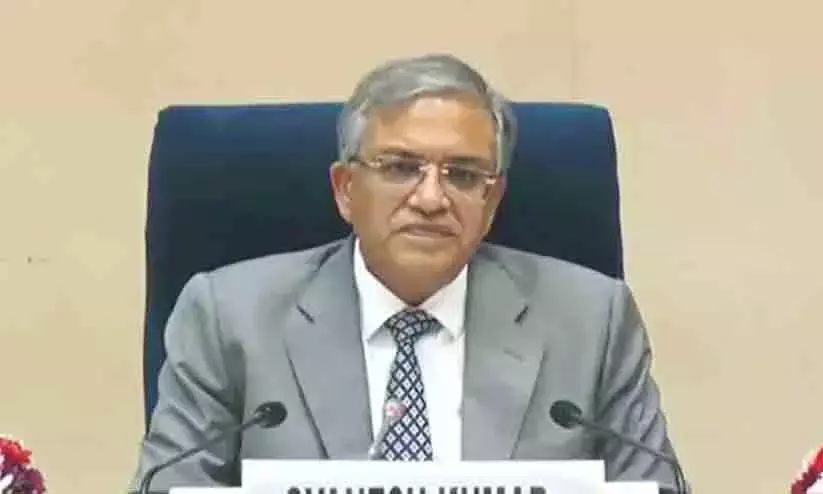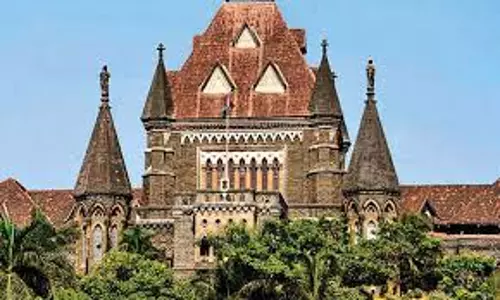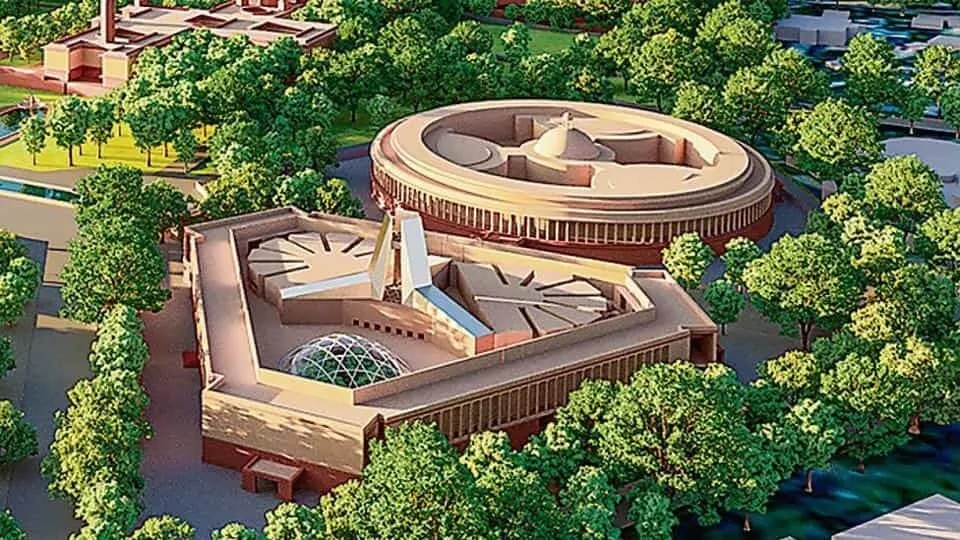
Constructing buildings does not constitute nation-building
text_fieldsAerial view of the design of the new parliament building, beside the existing one
The central government is going ahead with the construction of a new building for parliament. It was decided the other day to award the construction contact to 'Tata Projects' for Rs 861.90 lakh. It is expected that by 2022, when independent India will turn 75 years, both Lok Sabha and Rajya Sabha will have their sessions in the new structure. Instead of the existing circular building, the new structure will be a triangular on with three floors. Lok Sabha speakers have been raising the point in recent times that the present building, constructed during colonial era, has started showing signs of fatigue, and is not sufficient to meet the current requirements either. They also emphasise the need for a modern facility with state-of-the art technology. Reasonable as this need is, it has to be pointed out that with the onset of the Covid pandemic, a situation has arisen in the country compelling a resetting all our national priorities. At the time an imposing structure with ample size, elegance and modern facilities was conceived, the Indian economy was on a growth trajectory and there was enough justification for such a project.
However, that is not the situation now. The fall of our GDP by about 24 per cent in the last quarter, should force us to revisit all our expenditure. Thus a huge building for parliament is not the first item of the agenda in a country nosediving to economic recession. There is one reason however, that can be cited as justification for a change of building: the current building's size may not be able to provide enough seating in future. In the existing Lok Sabha hall, the maximum seating capacity is 550. Based on the number of voters envisaged as per the 2021 census, the Lok Sabha of 2026 will have a larger number of members than at present. The planned building will have 1,400 seats between the two houses. But if it is a matter of lack of seating capacity that is foreseen for 2026, there is no hurry to get a structure ready to occupy in 2022 itself. In addition to a new parliament house, the government is also planning to do away with several other government buildings and to construct new buildings (including the prime minister's residence) at a cost of Rs 20,000 crore. As these are not urgently required facilities, in view of the current financial state of the nation, it will only be appropriate to drop all this for now.
What should command the immediate attention of the government is how to tide over the economic slump, to provide jobs and livelihood for the people of the country and to save them from hunger. To this, delivering cash directly to the hands of the people is an urgent need. But, when it comes to such needs, the government does not have funds for any of these. What more, it has even come to a situation when even the salary of MP's and ministers had to be slashed. The government does not have cash to pay compensation of GST (Goods & Services Tax) arrears to states. The paucity of funds in the health sector has hampered Covid prevention efforts. The country itself is in a vortex of debt and farmers and the youth and villagers are in dire straits. Hunger has become a reality for a large section. How then is money, which the government pleads is not there, going to be made available for building a parliament house? When the government does not have money to prop numerous industries that have crumbled in Covid crisis, or the 50 lakh plus people who lost their jobs, or for the revival of the agrarian sector already in debt trap - and now further weakened - what will justify the same government spending Rs 862 crore to build a new structure with a completion time of 21 months on urgent basis? And how is an additional expenditure of Rs 20,000 by 2024 going to stand the government in good stead?
Democracy does not consist in parliament buildings. The core of democracy lies in the way parliament deals with people and their problems. On the one hand, the government takes a stand that the Covid crisis and cash crunch are no hurdles for parliament house construction, and on the other it cites Covid as the reason for doing away with a key right of people's representatives to ask questions by dropping the question & answer session. And finding the government's functioning neither welfare-oriented nor democratic, a minister has even tendered her resignation. Legislations that seriously affect people's lives are baked pushed through adequate debate. Opposition, which is an integral part of parliamentary system, is not allowed due time and consideration. Parliament sessions are held without even touching sensitive issues like GDP fall, the incursion by China, Covid prevention, GST default, farmer distress and the communal poison that is spreading in the country. Avenues for asking questions and seeking answers about what the people want know, are being shut one after another. It is not the structure of parliament that is crumbling now, but its very functioning. And that is what needs to be repaired. The priority now should be to shore up the economy and to overcome the pandemic. Instead of doing that, constructing a building would be to make a mockery of the people and democracy.






















